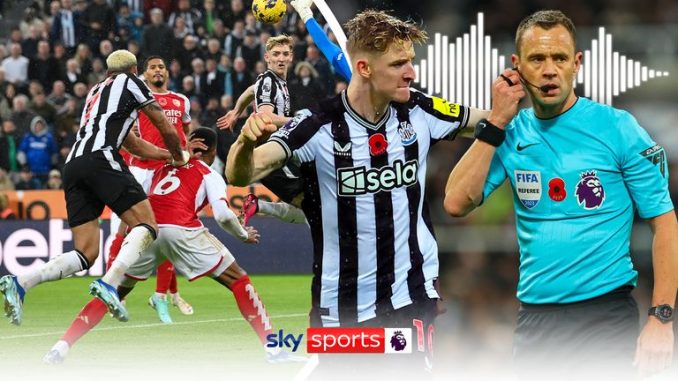
The Newcastle United vs. Arsenal audio checks commentary is entertaining, but it highlights how far VAR still has to go.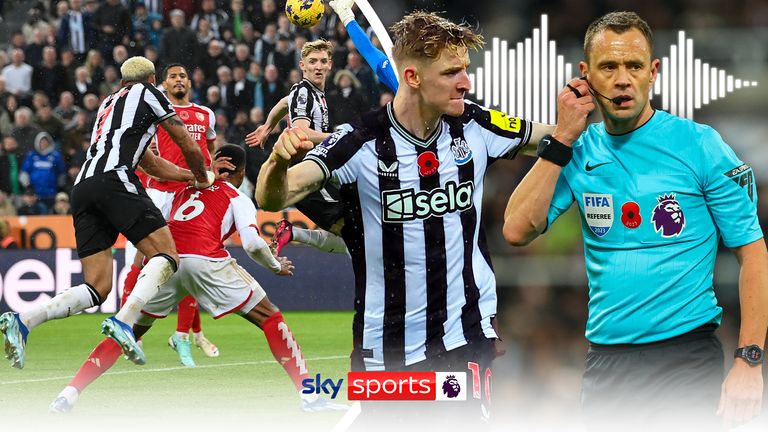
Four minutes of watching and listening to five people pick apart three, possibly four violations. Captivating, but chaotic.
“The process was correct,” Howard Webb said to Michael Owen while discussing Anthony Gordon’s goal against Arsenal on Match Officials Mic’d Up, a Premier League Productions show that examines major VAR decisions. Some will agree with Webb, some will disagree, but I believe most will agree that the process is far from smooth.
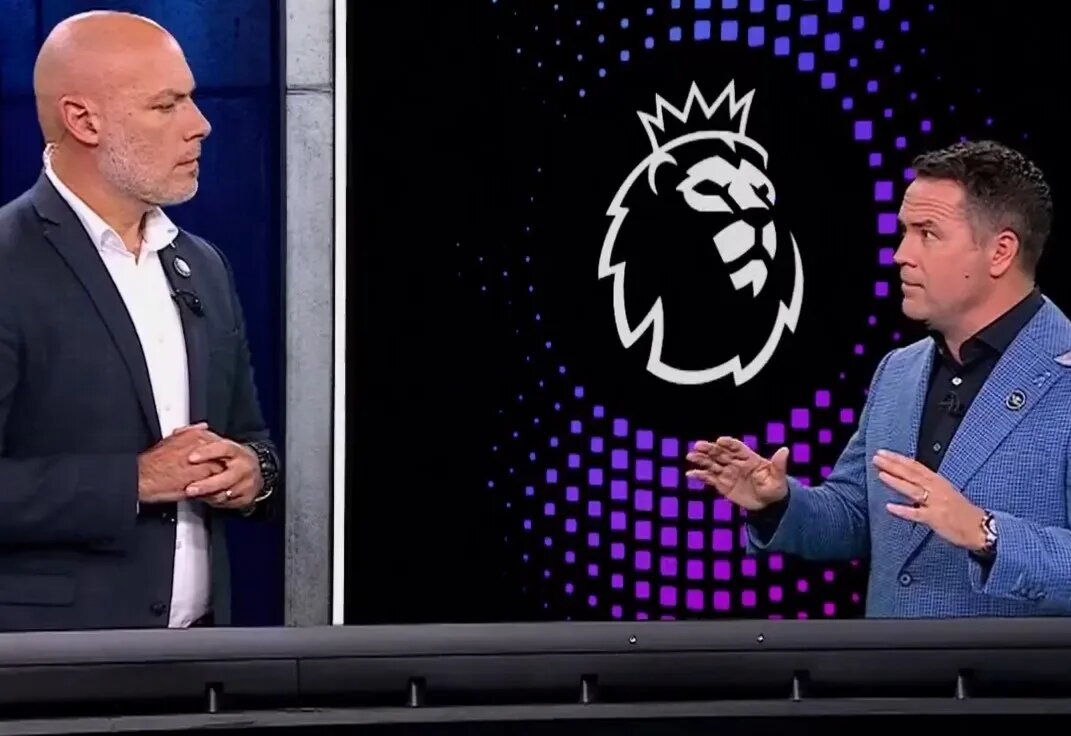
If Webb is being honest, it is probably far from the standard he desires to be present. It’s also a long way from being integrated into live match commentary, as some fans have requested for rugby and cricket. In fact, it’s unlikely to be a consideration at this point.
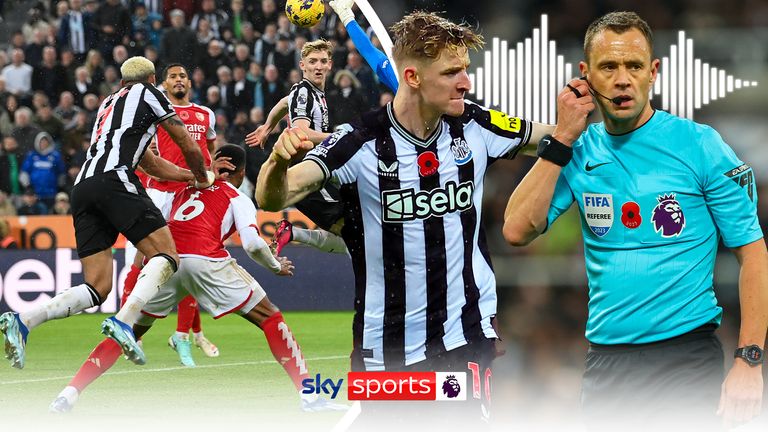
Hearing officials run these checks reveals just how much is going on. It’s difficult not to sympathize with the individuals involved, especially given that a mistake in the VAR room a month earlier during Liverpool vs Tottenham ruined a colleague’s reputation and brought the spotlight back on VAR.
There’s so much chatter on the audio of the checks that it’s like listening to a bunch of teenagers playing Fortnite. As the minutes pass, new obstacles emerge: for example, the goal line technology camera does not cover the area of the pitch where the ball may or may not have gone out. This forces the VAR and AVAR to make a quick decision (not out) based on “no conclusive evidence that the ball is out of play.” Officials require evidence to overturn a decision and simply do not have it. So they stick with the decision made on the field and move on.
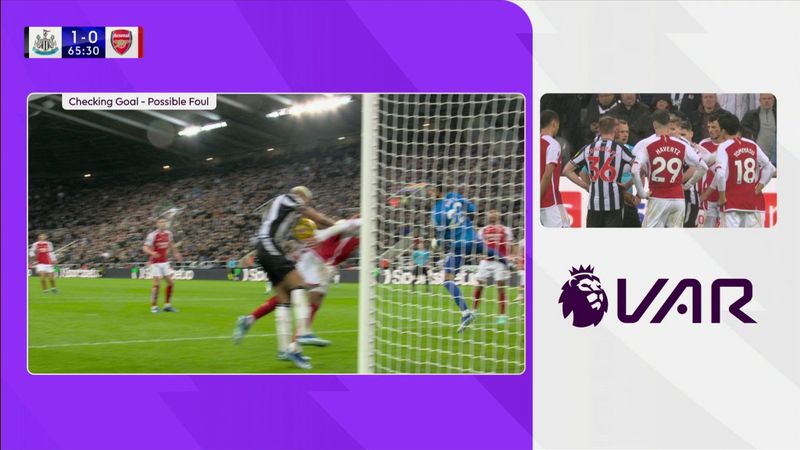
Then they start checking Joelinton’s challenge on Gabriel at the back post, and in the middle of that, the on-pitch referee throws in (presumably prompted by Arsenal players) that “there could be a hand ball in there as well.” VAR Meanwhile, Andy Madley claims he doesn’t “see anything of a push that warrants him [Gabriel] flying forward like that.”
Only then do they begin to consider the possibility of handball, and in the midst of this examination, Madley requests confirmation that Joelinton is onside. Are they now checking two things at the same time? Who said men couldn’t multitask?
This is where the situation starts to veer into comedy sketch territory. Stuart is another name for the AVAR. AVAR Stuart tells referee Stuart Attwell on the field “Right Stuart, there is a potential for handball but it’s not the goalscorer giving the handball.” VAR Madley responds, “No, it’s not the goalscorer, and it’s not deliberate.”
If Joelinton had handled the ball in the buildup, the goal would have stood because he was not the goalscorer. If Anthony Gordon had handled the ball by accident, the goal would have been disallowed because he was the scorer. My head hurts.
While all of this is going on, the poor on-field ref Attwell is surrounded by players and clearly wants a decision quickly: “talk to me Burty, how’s it looking?” he asks AVAR, Stuart.
AVAR As the plot thickens, Stuart begins talking to the Replay Operator (unconfirmed if he is also called Stuart), asking for alternate camera angles: goalkeeper David Raya is the second-rearmost player because he has come off his line to deal with the cross, implying Gabriel is now behind him. A potentially complicated offside call must be made.
Working with the Replay Operator, the VAR officials are unable to find an angle that shows when / if Joelinton makes contact with the ball, potentially ruling goalkeeper Gordon offside.
Because they can’t find a clear angle, there’s no conclusive evidence. The issue of offside is almost completely ignored, though it may be a moot point because the ball doesn’t appear to travel forward off Joelinton (even if he did touch it) and Gordon is already behind the ball.
Finally, the on-field goal decision is upheld. But what we’ve seen is four officials and a Replay Operator looking for evidence, failing to find any for two of the incidents (was the ball out, was it offside), while making a decision on the Joelinton push. With a half-hearted shout for handball thrown in for good measure.
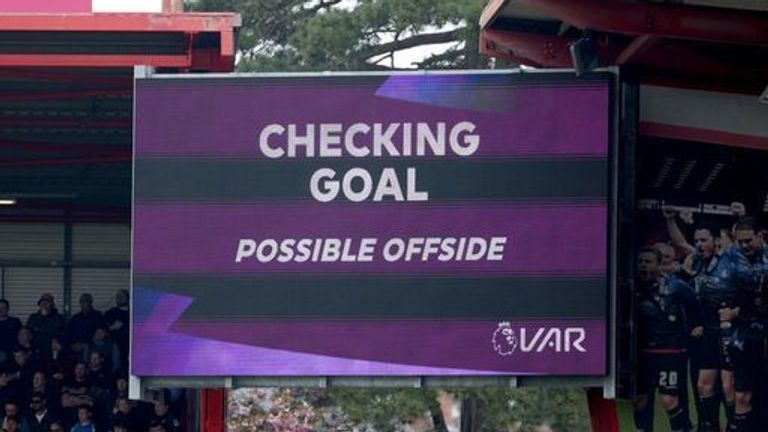
It’s unfair to compare VAR to rugby’s TMO process, but the simplicity and clear communication implemented in the oval ball game could serve as a model. Rugby officials have the advantage of looking at a large screen in the stadium, whereas football referees must scurry to a small screen at the side of the pitch, where they are in earshot of irate fans.
I’m also not a fan of the use of nicknames in all of this; it lends an unprofessional air to the situation. If everyone is called Stuart, it may be a case of necessity. Do rugby officials say’matey’ during big calls?
Crucially, rugby referees have something football officials do not: the freedom to discuss the incident with their TMO colleague without being harassed by players. It will not be easy to solve the big screen and behavior issues in football, but we must strive for it.
Allow me to conclude with a hand grenade. I’m a Newcastle fan, and I was watching the game from the corner where Joe Willock JUST about kept the ball in, and I believe it was a foul on Gabriel. Bye!

Leave a Reply